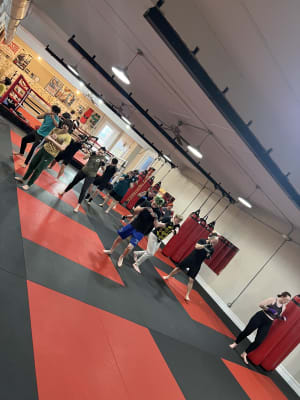
Martial arts have evolved significantly over the centuries, giving rise to various styles and practices that cater to different aspects of combat, self-discipline, and personal development. Two broad categories often discussed are traditional martial arts and modern combat sports. Each has its unique characteristics, philosophies, and applications. Here’s a detailed comparison to help you understand the key differences between these two approaches to martial arts.
Traditional Martial Arts
1. Historical Roots and Philosophy
Traditional martial arts have deep historical roots and often carry the cultural heritage of their origin. These arts typically emphasize not just fighting techniques but also philosophical and spiritual aspects. Practices like Tai Chi, Karate, and Aikido often incorporate principles of meditation, ethics, and personal development alongside physical training.
2. Forms and Techniques
Traditional martial arts frequently include complex forms (katas) that are practiced to develop technique, precision, and muscle memory. These forms are a crucial component, teaching practitioners a variety of techniques and sequences that represent a system’s core principles.
3. Emphasis on Discipline and Etiquette
A significant focus in traditional martial arts is the development of discipline, respect, and etiquette. Training often involves rituals and practices designed to instill a sense of honor, humility, and mental fortitude. The adherence to traditional customs and hierarchical structures is common.
4. Self-Defense and Personal Development
While traditional martial arts include self-defense techniques, the broader focus is often on personal development, including physical fitness, mental resilience, and spiritual growth. These arts are as much about shaping character and behavior as they are about combat skills.
5. Less Competitive
Traditional martial arts are generally less competitive compared to modern combat sports. The emphasis is more on personal improvement and mastery of technique rather than on winning matches or earning titles.
Modern Combat Sports
1. Focus on Competition
Modern combat sports, such as Mixed Martial Arts (MMA), Boxing, and Kickboxing, are designed primarily with competition in mind. The rules, techniques, and training methods are oriented toward preparing athletes for competitive matches and ensuring effectiveness in a controlled environment.
2. Rule-Based and Regulated
Combat sports are highly regulated with specific rules and regulations to ensure the safety of participants. These rules dictate permissible techniques, scoring systems, and match conduct, which are designed to standardize competition and minimize injuries.
3. Training Methods
Training in modern combat sports is often more focused on practical application and effectiveness. This includes rigorous physical conditioning, strategy development, and sparring. Training methods are generally more specialized and may prioritize performance over the broader philosophical aspects found in traditional martial arts.
4. Technical Adaptability
Modern combat sports often involve the integration of various techniques from different martial arts. For instance, MMA fighters incorporate striking techniques from Muay Thai, grappling from Brazilian Jiu-Jitsu, and wrestling. This adaptability allows practitioners to develop a well-rounded skill set for competition.
5. Emphasis on Performance
The primary goal in modern combat sports is often performance and winning. Athletes train to maximize their effectiveness in the ring or cage, focusing on strategies, techniques, and conditioning that will give them a competitive edge.
Inherent problems with both if left unchecked
Traditionally, because these older martial arts are steeped in tradition, a lot of martial arts, take on the cultural norms of the country that birthed them. Many of these styles are so far removed from the reason they started in the first place that it has a Dunning-Kruger effect on it’s instructors and students and exchange flashy choreographed patterns and movements that could never be executed in real time, leaving the student in a very bad position and mi dart when faced with the realities of an attack.
And in the modern combat sport arena there’s a lot of ego and unchecked attitude and bully-type nature. These gyms are so focused on competitive outcomes that talking trash, disrespect and the need to prove their combat prowess takes precedence over the fact that the other person has a job, people that love them and are simply existing as a human just like they are. Their humanity is reduced to their record in the ring/cage and what looks good on paper.
Conclusion
Both traditional martial arts and modern combat sports offer valuable benefits, but they cater to different interests and goals. Traditional martial arts provide a rich cultural and philosophical framework, emphasizing personal growth, discipline, and technique. In contrast, modern combat sports focus on competitive performance, technical effectiveness, and physical conditioning.
Choosing between the two largely depends on your personal objectives—whether you seek the holistic development offered by traditional practices or the competitive edge provided by modern sports. Understanding these differences can help you make an informed decision and find the path that best aligns with your goals and interests in martial arts.
Also, know that their are plenty of gyms, academy’s, and studios that teach under the umbrella of effective, stress inoculated, battle-tested techniques and tactics while still maintaining the highest level of respect, honor and integrity! These gyms are a true gem to the communities they serve!


